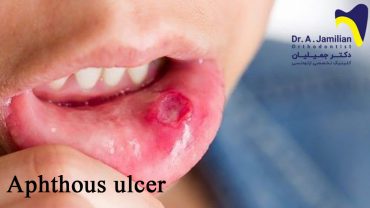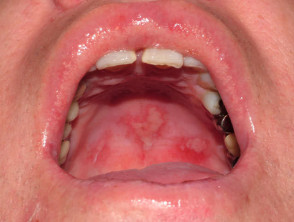
Depending on the location and severity of the condition, Aphthous ulcers can be painful, self-limiting, or recurrent. Treatment options vary according to the type and severity of the condition. Although it is rare for an outbreak to be the first sign of aphthous ulcers, they can be treated with appropriate prescription or over-the-counter medications. In the meantime, symptomatic relief is often possible with numbing preparations, which can be used to reduce pain.
Among the most common medications used for aphthous ulcers is an antiseptic mouthwash that contains chlorhexidine. Topical and oral antibiotics can also help. Generally, antibiotics are administered in mouthwash, which is rinsed around the mouth. It is important to note that mouthwashes containing tetracycline should not be used by children under the age of eight as it can discolor teeth.
The most common type of aphthous ulcer is an oral ulcer. It usually starts as a round, elevated area with a red halo. Eventually, the ulcer develops a punched-out form and is covered by healthy tissue. While it’s rare to develop multiple aphthous infections, they can be extremely painful. If there is a family history of aphthous disease, it is important to consult your doctor or pharmacist about the best treatments.
While the cause of an aphthous ulcer is unknown, medications for this condition can be effective. Topical ointments that contain chlorhexidine are effective for aphthous ulcer treatment. Antibiotics are also effective for treating the infection. A mouthwash containing tetracycline is not recommended for children under the age of eight because it can lead to tooth discoloration in some children.
Herpetiform aphthous ulcers are typically 5mm in diameter and are usually painful. Most people will experience a single aphthous ulcer at a time, but recurrent outbreaks may indicate that oral cancer is the cause. Fortunately, there are several medications available for Aphthous ulcers. These include dietary supplements, as well as a range of pain-relieving medicines.
Treatment options for aphthous ulcers include antiseptic mouthwash with chlorhexidine. Oral antibiotics are also effective in the treatment of the condition. The antibiotics are usually prescribed as mouthwashes that are swished around the mouth. However, these medications should not be used for children under eight years of age. These drugs can cause tooth discoloration. The symptoms and the severity of aphthous ulcers depend on the individual.

Treatment for aphthous ulcers generally involves antiseptic mouthwashes containing chlorhexidine. Some aphthous ulcer medications can also be oral. Generally, antibiotics are given in the form of mouthwashes and are swished around the mouth. While antibiotic mouthwashes are effective, they should not be used in children under the age of eight.
Although canker sores are not dangerous and heal spontaneously, there is no cure for canker sores. Treatment is aimed at minimizing pain and speeding recovery. Medicines include antiseptic mouthwashes containing chlorhexidine. It is recommended to take these antiseptic mouthwashes regularly. Treatment can save patients’ lives.
The primary treatment for aphthous ulcers is antibiotics. These medications are most effective in children, but they should not be used in children under eight years of age. They may cause discoloration of teeth and are not suitable for adults. The best treatment for canker sores is a combination of antibiotics and antispasmodics. A quality mouth rinse for canker sores can relieve pain and reduce inflammation in the mouth.
If aphthous ulcers recur, you should consult a doctor to determine the best treatment. You should also see your doctor to determine whether canker sores are caused by a virus. Some medications can even lead to severe oral infections. Taking antibiotics is important to treat canker sores. Site Club Salamanca may recommend antiviral drugs for the treatment of aphthous stomatitis.
Herpetic sores can be treated with topical or oral medications. In most cases, aphthous ulcers recur, and there is no specific cure for this disease. However, you can take oral antiviral medications to relieve pain and reduce the frequency of flare-ups. TCs are the standard treatment for recurrent aphthous stomatitis.
